当前位置:网站首页>Tar source code analysis Part 3
Tar source code analysis Part 3
2022-07-04 06:37:00 【Tao song remains the same】
buffer pool The implementation of the , It's also very classic :
#include "util/tc_buffer_pool.h"
#include <cassert>
#include <sstream>
#include <iomanip>
inline static std::size_t RoundUp2Power(std::size_t size)
{
if (size == 0)
return 0;
size_t roundUp = 1;
while (roundUp < size)
roundUp *= 2;
return roundUp;
}
namespace tars
{
TC_Slice::TC_Slice(void* d, size_t dl, size_t l) :
data(d),
dataLen(dl),
len(l)
{
}
TC_BufferPool::TC_BufferPool(size_t minBlock, size_t maxBlock) :
_minBlock(RoundUp2Power(minBlock)),
_maxBlock(RoundUp2Power(maxBlock)),
_maxBytes(1024 * 1024), // pool The allocated memory cannot exceed it , Otherwise directly new and delete, Avoid using too much memory
_totalBytes(0) // pool Memory in
{
/*
* minBlock It means that we should pool Responsible for the minimum memory allocation , Rounding up , such as 20 byte , Rounding off 32
* maxBlock It means that we should pool The maximum memory allocation for which you are responsible , Rounding up , such as 1000 byte , Rounding off 1024
* listCount It's calculation buffer Number of linked lists , such as minBlock yes 32,maxBlock yes 64, Then only two linked lists are needed
*/
size_t listCount = 0;
size_t testVal = _minBlock;
while (testVal <= _maxBlock)
{
testVal *= 2;
++ listCount;
}
assert (listCount > 0);
_buffers.resize(listCount);
}
TC_BufferPool::~TC_BufferPool()
{
std::vector<BufferList>::iterator it(_buffers.begin());
for (; it != _buffers.end(); ++ it)
{
BufferList& blist = *it;
BufferList::iterator bit(blist.begin());
for ( ; bit != blist.end(); ++ bit)
{
//delete[] (*bit);
delete[] reinterpret_cast<char*>(*bit);
}
}
}
TC_Slice TC_BufferPool::Allocate(size_t size)
{
TC_Slice s;
size = RoundUp2Power(size);
if (size == 0)
return s;
if (size < _minBlock || size > _maxBlock)
{
// Not to return pool management , direct new
s.data = new char[size];
s.len = size;
}
else
{
// Positioning to specific buffer Linked list
BufferList& blist = _GetBufferList(size);
s = _Allocate(size, blist);
}
return s;
}
void TC_BufferPool::Deallocate(TC_Slice s)
{
if (s.len < _minBlock || s.len > _maxBlock)
{
// Not to return pool management , direct delete
delete[] reinterpret_cast<char*>(s.data);
}
else if (_totalBytes >= _maxBytes)
{
// Too much memory , Don't give it back pool
delete[] reinterpret_cast<char*>(s.data);
}
else
{
// give back pool
BufferList& blist = _GetBufferList(s.len);
blist.push_back(s.data);
_totalBytes += s.len;
}
}
void TC_BufferPool::SetMaxBytes(size_t bytes)
{
_maxBytes = bytes;
}
size_t TC_BufferPool::GetMaxBytes() const
{
return _maxBytes;
}
std::string TC_BufferPool::DebugPrint() const
{
std::ostringstream oss;
oss << "\n===============================================================\n";
oss << "============ BucketCount " << std::setiosflags(std::ios::left) << std::setw(4) << _buffers.size() << " ================================" << std::endl;
oss << "============ PoolBytes " << std::setw(10) << _totalBytes << " ============================" << std::endl;
int bucket = 0;
size_t size = _minBlock;
std::vector<BufferList>::const_iterator it(_buffers.begin());
for (; it != _buffers.end(); ++ it)
{
const BufferList& blist = *it;
oss << "== Bucket " << std::setw(3) << bucket
<< ": BlockSize " << std::setw(8) << size
<< " Remain blocks " << std::setw(6) << blist.size()
<< " ======== \n";
++ bucket;
size *= 2;
}
return oss.str();
}
TC_Slice TC_BufferPool::_Allocate(size_t size, BufferList& blist)
{
assert ((size & (size - 1)) == 0);
TC_Slice s;
s.len = size;
if (blist.empty())
{
s.data = new char[size];
}
else
{
// Take it directly from the linked list buffer
s.data = *blist.begin();
blist.pop_front();
_totalBytes -= s.len;
}
return s;
}
TC_BufferPool::BufferList& TC_BufferPool::_GetBufferList(size_t s)
{
const BufferList& blist = const_cast<const TC_BufferPool& >(*this)._GetBufferList(s);
return const_cast<BufferList& >(blist);
}
const TC_BufferPool::BufferList& TC_BufferPool::_GetBufferList(size_t s) const
{
assert ((s & (s - 1)) == 0);
assert (s >= _minBlock && s <= _maxBlock);
size_t index = _buffers.size();
size_t testVal = s;
while (testVal <= _maxBlock)
{
testVal *= 2;
index --;
}
return _buffers[index];
}
} // end namespace tars
边栏推荐
- lightroom 导入图片灰色/黑色矩形 多显示器
- Mysql 45讲学习笔记(七)行锁
- Is the insurance annuity product worth buying? Is there a hole?
- Explain in one sentence what social proof is
- C language exercises (recursion)
- Fundamentals of SQL database operation
- Download kicad on Alibaba cloud image station
- Wechat applet scroll view component scrollable view area
- Software keywords and process information intercepted by Golden Shield video player
- List of top ten professional skills required for data science work
猜你喜欢

R统计绘图-随机森林分类分析及物种丰度差异检验组合图
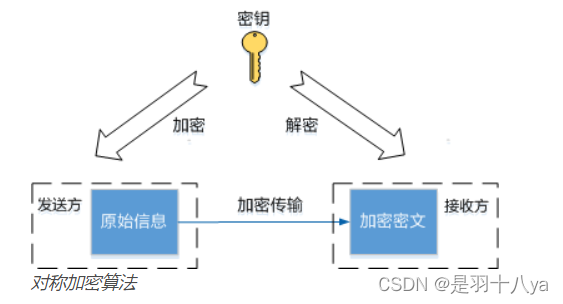
Cloud native - SSH article that must be read on the cloud (commonly used for remote login to ECS)

Native Cloud - SSH articles must be read on Cloud (used for Remote Login to Cloud Server)

Learning multi-level structural information for small organ segmentation
![[problem record] 03 connect to MySQL database prompt: 1040 too many connections](/img/bb/4d8d202cf5c6e556bc860a734e5934.png)
[problem record] 03 connect to MySQL database prompt: 1040 too many connections
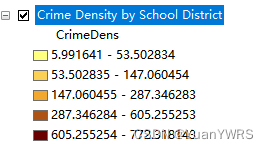
Arcpy 利用updatelayer函数改变图层的符号系统
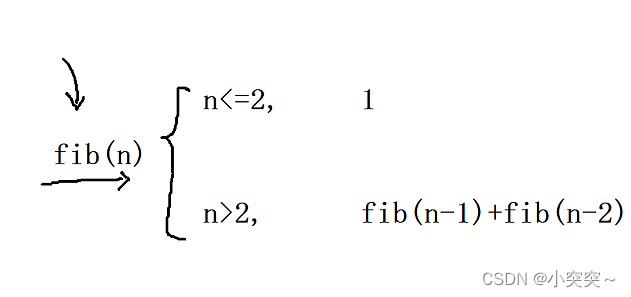
C language exercises (recursion)
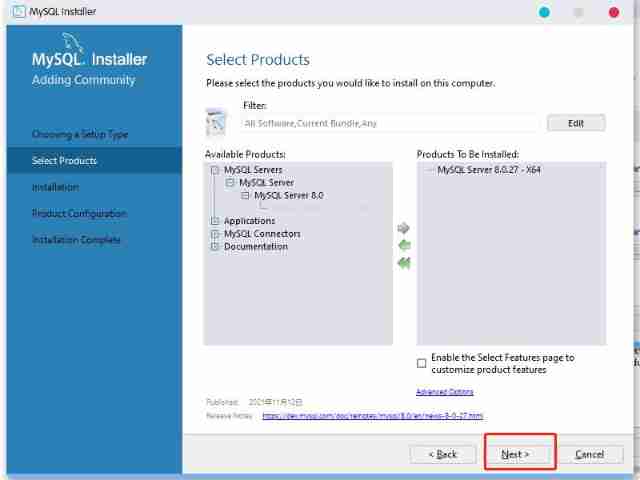
MySQL installation and configuration

如何实现视频平台会员多账号登录
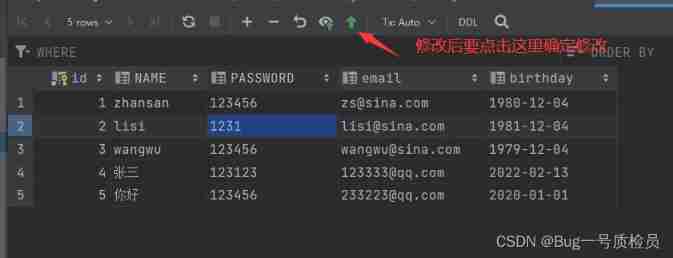
MySQL learning notes 3 - JDBC
随机推荐
tars源码分析之10
GoogleChromePortable 谷歌chrome浏览器便携版官网下载方式
uniapp 自定义环境变量
Considerations for testing a website
Sleep quality today 78 points
QT releases multilingual International Translation
The solution of win11 taskbar right click without Task Manager - add win11 taskbar right click function
After the festival, a large number of people change careers. Is it still time to be 30? Listen to the experience of the past people
4G wireless all network solar hydrological equipment power monitoring system bms110
Sort list tool class, which can sort strings
2022 Xinjiang's latest eight members (Safety Officer) simulated examination questions and answers
双色球案例
Abap:ooalv realizes the function of adding, deleting, modifying and checking
746. Climb stairs with minimum cost
Invalid revision: 3.18.1-g262b901-dirty
Matlab remainder
Appium foundation - appium installation (II)
手动对list进行分页(参数list ,当前页,页面大小)
Redis面试题集
JSON web token -- comparison between JWT and traditional session login authentication